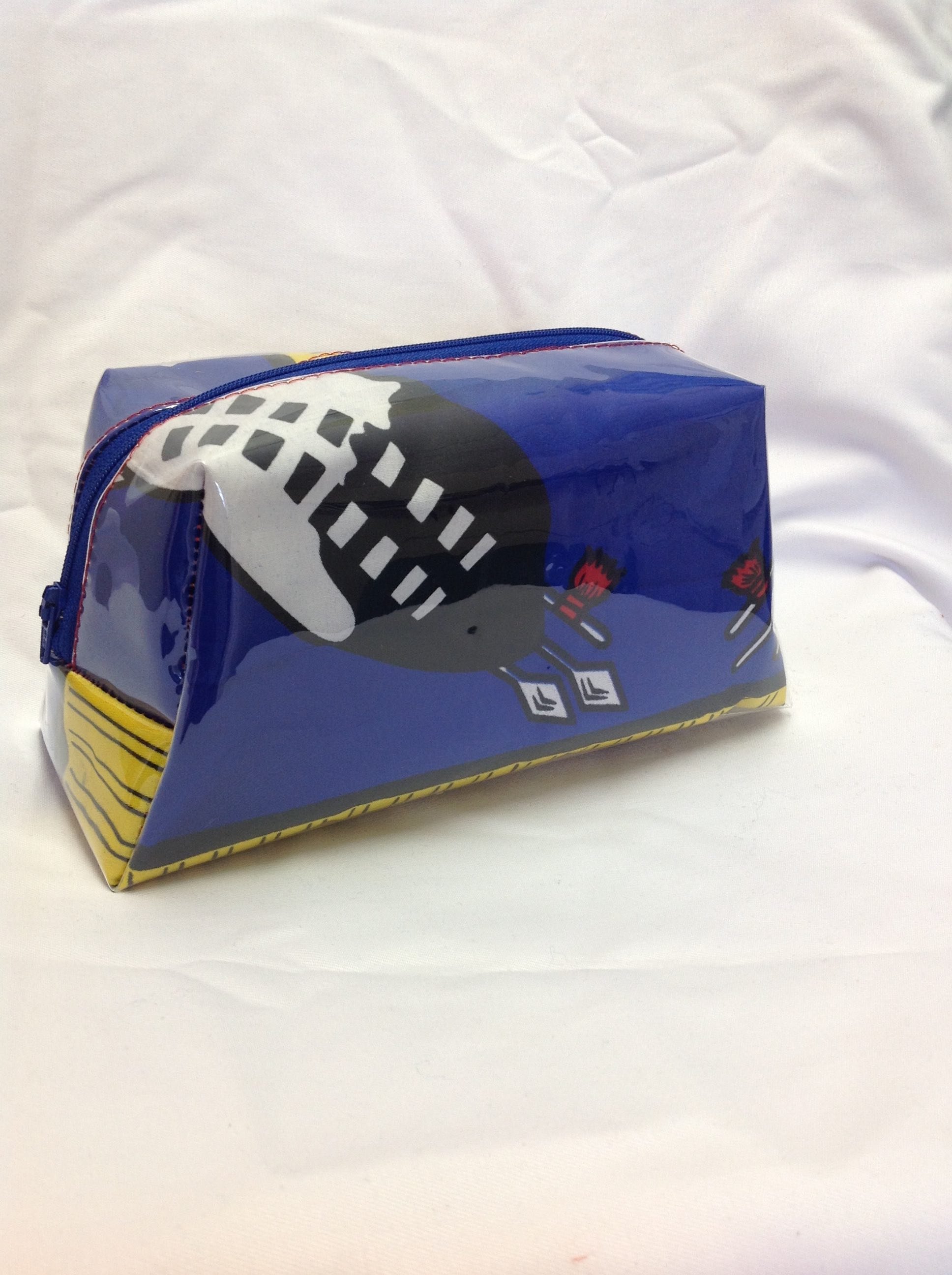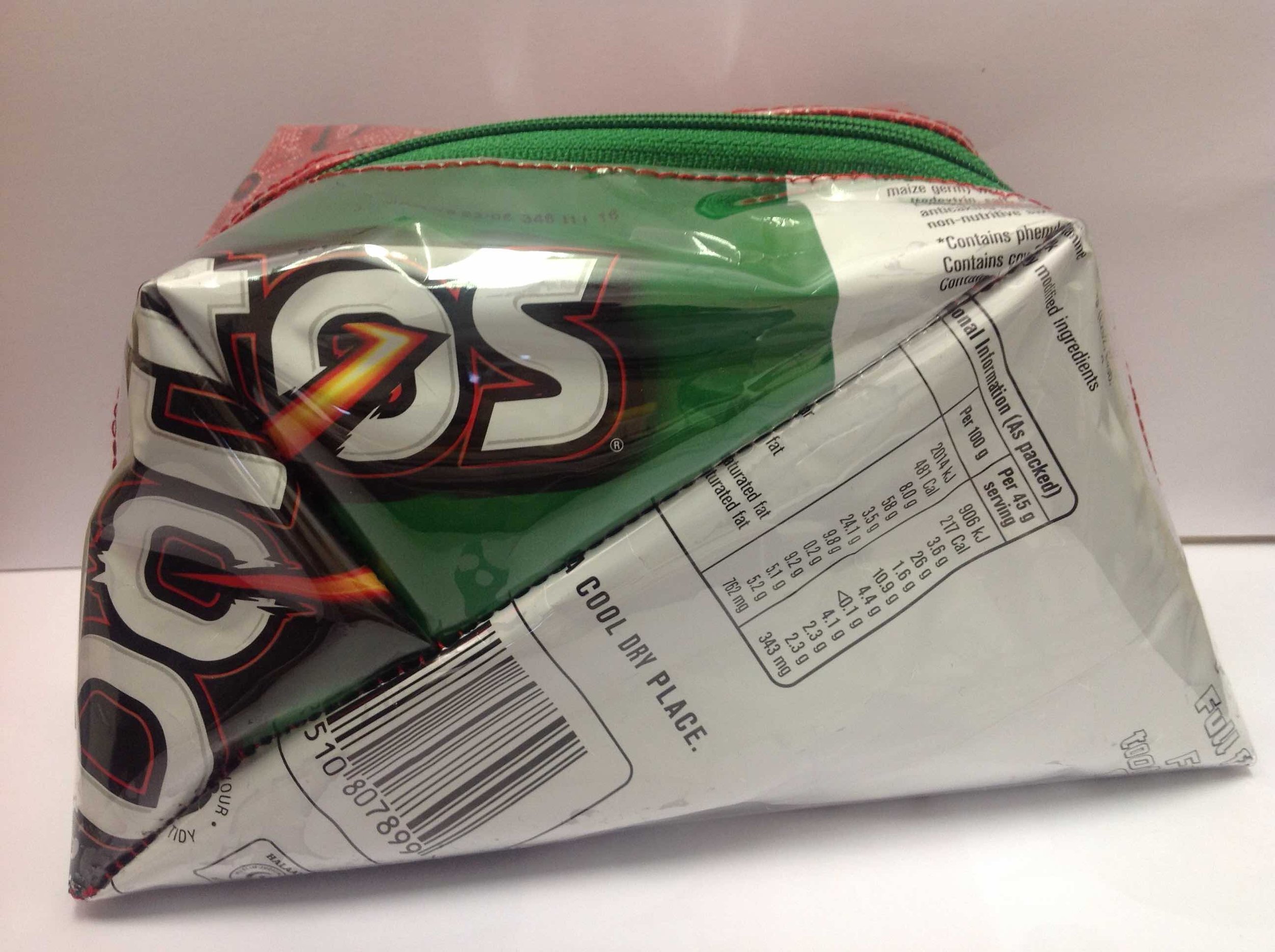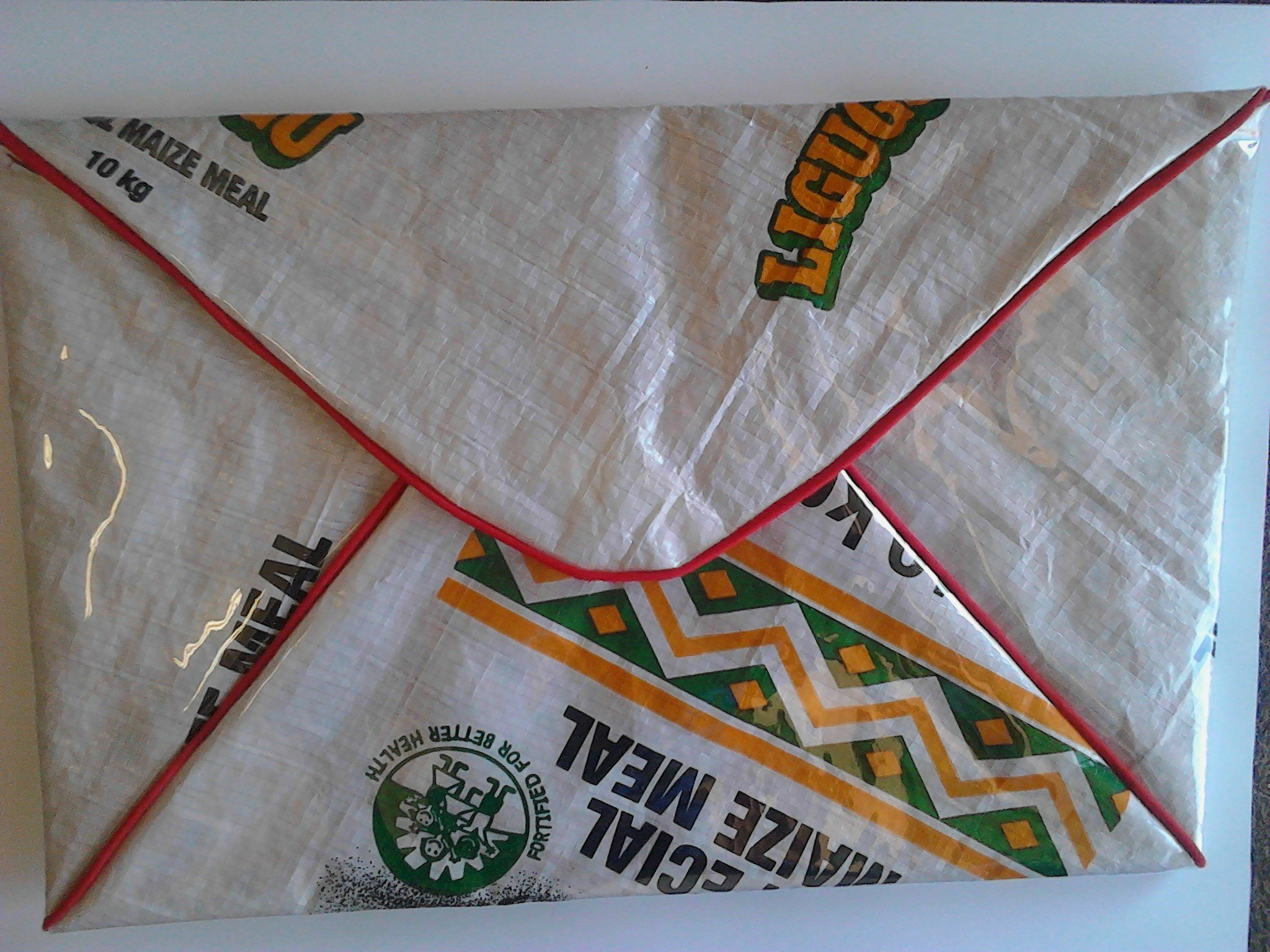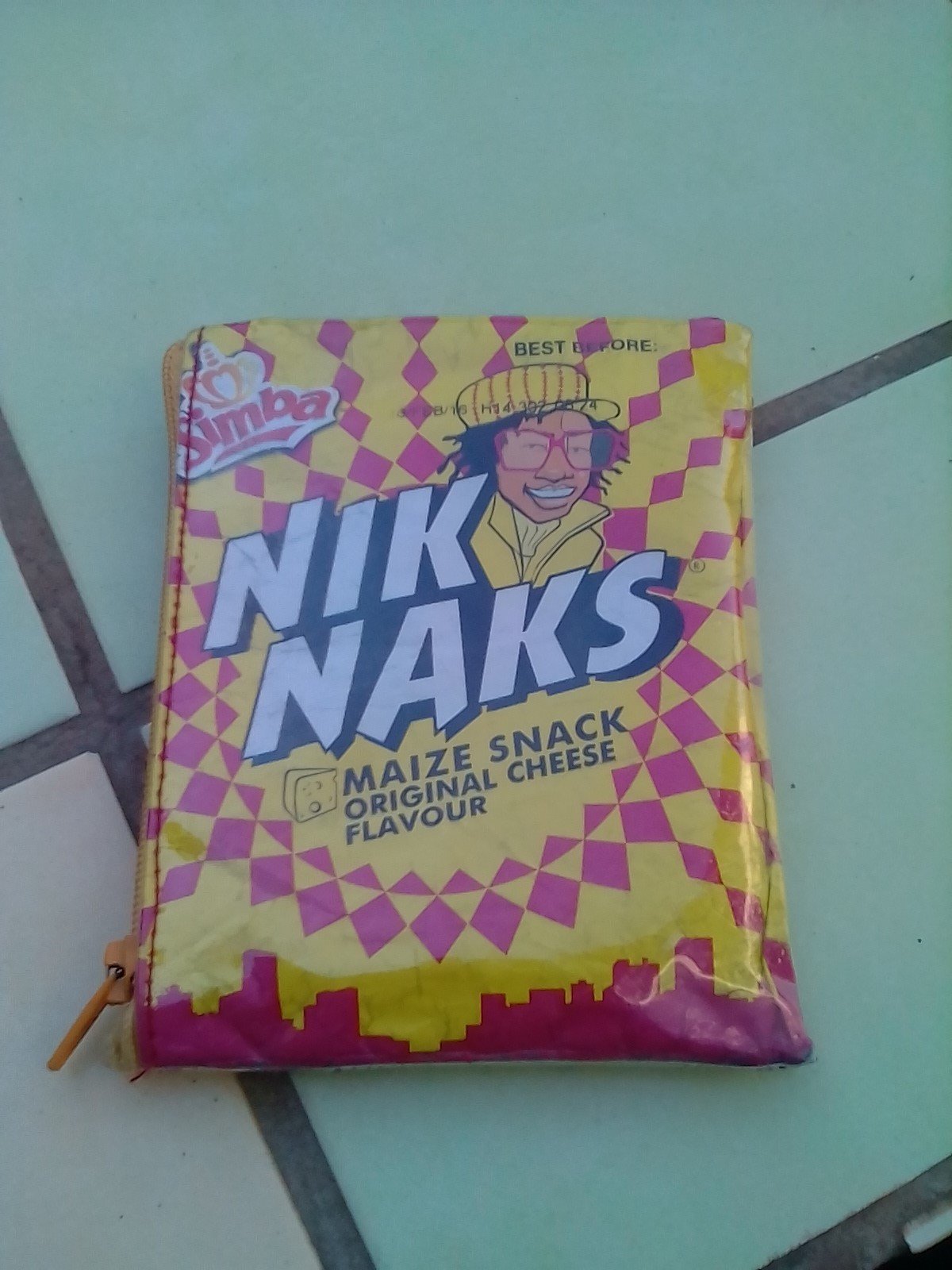Startup Story
(ban-twa-na) Craft, founded by entrepreneur Lungile Mbhamali in Eswatini, began 2017, a small, handcrafted business which collects and recycles plastic packaging waste from supporters and friends of (ban-twa-na) and also collecting in areas where waste pollution is to be found. After collecting the waste, (ban-twa-na) constructs various craft items such as bags, coin purses, key holders, laptop bags, make up pouches and also backpacks, mainly using recycled chocolate wrappers, chip packets and maize meal bags. Founder Lungile has been recognised for her entrepreneurial recycling efforts and featured in Forbes Magazine in October 2018, and also CNN. She has had the chance to train differently-abled women and men on toy and doll making, under the organization Palms for Life, has undertaken and delivered a few corporate orders, and also exported goods to South Africa and England.
LoA learned more about founder Lungile Mbhamali and her enterprising business building.
What does your company do?
(ban-twa-na) Craft collects plastic waste and converts it into accessories for daily personal use, including bags, key holders, coin purses, wallets, make up bags and also back packs and laptop bags.
“(ban-twa-na) Craft will grow into a factory-run business, concentrating on bettering the lives of women in the rural communities, by providing a living wage and offering them wellness programmes.”
What inspired you to start your company?
I used to work as a pre-school admin assistant and would walk the kids around the Ring Road on Fridays, teaching them to collect waste as they walked along. Graduation was around the corner and funds were low. So, the thought was let’s wash the chip packets collected and try recycling them. Since I had a sewing machine, I thought why not see if I could make bags from them. So I did, and the parents loved it. As a result, I was told to make a business from this idea. There was a market day happening at Ngwenya Glass and to join I was told I had to be a SWIFT member. So on reaching the offices, I showed them the recycled products I had made and was accepted to be a member. That was how I started making and selling these recycled accessory products.
Why should anyone use your service or product?
The environment is cluttered with plastic pollution, in an extreme way now. By collecting the waste and making durable, quality products, this helps to eliminate the issue. At times you even have livestock eating the plastics, and farmers report back that their animals die as a result, since they cannot tell the difference between food or plastic. So, the more we collect this waste, the better it will be for livestock too. Some semi-urban areas tend to burn their waste in pits, in their back yards. There have been case studies done by a Professor at the University of Eswatini who found that more people were going to hospitals for respiratory infections, or asthma because of smoke inhalation, since the homes burn waste every after 2 weeks at the most. Thus, people who were never even born with asthma get it as they grow older because of smoke inhalation from plastic burning. Change of mindset is a process, but our local market is now warming to the idea that you can upcycle a product in this manner.
“I had a change of heart and felt going 'green' was a better way of serving the community.”
Tell us a little about your team
I am the founder of (ban-twa-na) Craft and am a creative at heart. I enjoy product development, producing the bags, doing quality checks, and if we get a large order, I outsource the work to women in the community who are paid per product made. James Beuta is the co-founder of (ban-twa-na) Craft and he tends to do deliveries, checks deadlines are met on time, and enjoys setting up activation spaces during market days.
Share a little about your entrepreneurial journey. And do you come from an entrepreneurial background?
Ever since graduating from Technikon Witwatersrand in 1996, now known as the University of Johannesburg, in Fashion Design and Technology, most of the time I have been self-employed. I have previously focused on creating designer garments for women, and also participated in Face of Africa as a designer. But I had a change of heart and felt going 'green' was a better way of serving the community. My mother was an entrepreneur who ran a jewellery shop, way before she went missing. All in all, this inspired me and I am doing this partially for her.
What are your future plans and aspirations for your company?
(ban-twa-na) Craft will grow into a factory-run business, concentrating on bettering the lives of women in the rural communities, by providing a living wage and offering them wellness programmes. In the future, (ban-twa-na) Craft will be exporting products to neighboring countries, as well as European countries.
“In the future, (ban-twa-na) Craft will be exporting products to neighboring countries, as well as European countries.”
What gives you the most satisfaction being an entrepreneur?
The satisfaction of saving that heap of plastic from simply remaining in the waste heap. The joy it brings when people think you are actually selling candy and chips but they are really upcycled accessories, then they laugh, get to hold the product, and buy - it’s just a WOW!
What's the biggest piece of advice you can give to other women looking to start-up?
Dream, implement, grow crocodile skin, because it's not easy to start. But if you know what you want, stay focused, do market days, try competitions locally and around the world. Don’t give up. If you fall, get up, dust your knees, and keep walking with your chin up. Never allow anyone to make you feel you are wasting your time, because if you have that 'feeling', keep at it. It will be worth it.
Contact or follow (ban-twa-na) Craft
FACEBOOK | INSTAGRAM | EMAIL bantwanaswaziland@gmail.com
Why LoA loves it…
At Lionesses of Africa, we love seeing women eco-preneurs making a real difference to the environment by innovative recycling and business building. In Eswatini, Lungile Mbhamali is doing just that with her plastic waste recycling business, transforming plastic pollution into innovative, appealing accessories and making a positive impact. Not only that, but she is also creating much needed jobs in her local community. She is an inspiration! — Melanie Hawken, founder & ceo, Lionesses of Africa











